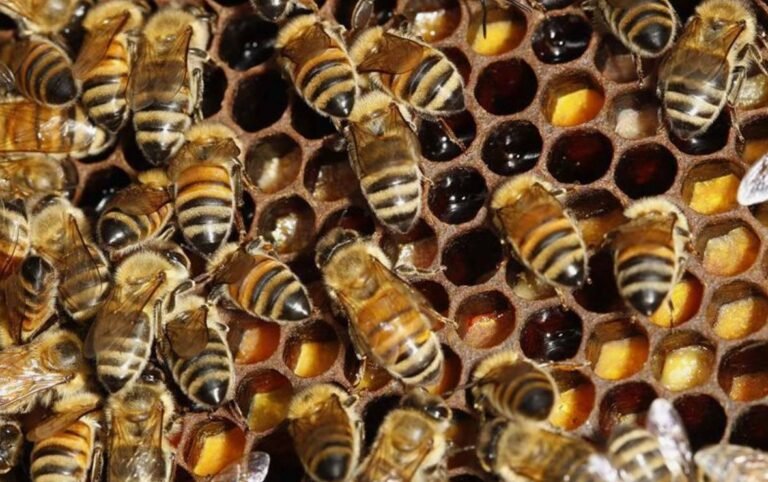
In recent years, bee populations have been declining at an alarming rate, leading to growing concerns about the survival of these critical pollinators. Bees play an essential role in ecosystems by pollinating plants, which supports food production and biodiversity. With the rise in environmental challenges like habitat loss, pesticide use, and climate change, many bee species are now endangered. This is where bee controllers step in, offering specialized services to protect bees and ensure their survival.
Bee Controllers in Bee Conservation
Bee controllers are professionals trained in managing bee populations in a way that prioritizes their safety and welfare. Unlike exterminators, their primary goal is not to eliminate bees but to safely relocate or manage colonies to preserve the species. These experts work closely with conservationists and local governments to ensure that bee populations remain stable, which in turn supports the natural environment and agricultural systems.
Bee controllers employ eco-friendly methods and techniques that minimize harm to the bees. Whether it’s handling aggressive species like Africanized bees or moving endangered species to protected areas, their interventions are vital for maintaining healthy bee populations. Additionally, they educate the public about the importance of bees and encourage humane practices when dealing with them.
Importance of Bees in Ecosystems
Before diving deeper into how bee controllers help protect bees, it’s essential to understand why bees are so important. Bees are responsible for pollinating about one-third of the food we eat, including fruits, vegetables, nuts, and seeds. They also contribute to the pollination of wild plants, ensuring that diverse ecosystems thrive. Without bees, the balance of nature would be disrupted, leading to a decline in biodiversity and food shortages.
However, bees are under threat from several factors, including pesticide exposure, habitat destruction, and climate change. The decline in bee populations not only affects agriculture but also threatens the survival of plant species that depend on bee pollination.
Bee Controllers’ Expertise in Bee Relocation
One of the primary ways bee controllers protect endangered species is through safe and humane bee relocation. Relocating bees is a delicate process that requires expertise and knowledge of bee behavior. Unlike extermination, which kills entire colonies, bee relocation involves moving bees to a safer environment where they can thrive without posing a risk to humans.
For instance, when a bee colony builds a hive in a residential area or commercial property, it can be seen as a threat to people’s safety. In such cases, a bee controller is called upon to assess the situation and determine the best course of action. Instead of destroying the hive, they carefully remove it and transport it to a more suitable location, such as a local apiary or a designated conservation area.
By providing a humane bee relocation service, these professionals play a crucial role in protecting endangered species while also addressing public safety concerns. Relocating bees instead of exterminating them helps maintain healthy bee populations, contributing to overall biodiversity and ecological balance.
Supporting Endangered Bee Species
Not all bee species are equally resilient. Some are more susceptible to environmental changes and human interference. Bee controllers work with environmental agencies to identify which species are most at risk and need immediate attention. For example, certain species of solitary bees, which are less known but equally important as honeybees, are facing extinction.
Through monitoring and controlled intervention, bee controllers help protect these endangered species by providing safe habitats and ensuring that human activities do not decimate their populations. They also support breeding programs for endangered bees, helping to increase their numbers in the wild.
Importance of Public Awareness and Education
One of the significant contributions of bee controllers is public education. Many people still see bees as pests and don’t fully understand their critical role in the ecosystem. By spreading awareness about the importance of bees and the humane alternatives to extermination, bee controllers are changing the narrative.
Educational programs provided by bee controllers often include how to coexist with bees, what to do when a hive is nearby, and how individuals can contribute to bee conservation. These programs are vital in changing people’s perceptions and encouraging practices that protect rather than harm bee populations.
Collaboration with Conservation Organizations
Bee controllers do not work in isolation. They often collaborate with conservation organizations, research institutions, and local governments to ensure that bee populations are well-protected. These partnerships help in sharing knowledge, resources, and technologies that are crucial for the long-term survival of endangered bees.
Through joint efforts, bee controllers and conservationists develop strategies that not only protect existing colonies but also restore natural habitats. For instance, reforestation projects and the planting of bee-friendly flowers are initiatives that bee controllers often support to provide better environments for bees.
Challenges Faced by Bee Controllers
While bee controllers play an essential role in conserving endangered bees, their work is not without challenges. One of the main obstacles they face is the widespread use of pesticides, which can severely harm bee populations. Additionally, habitat loss due to urbanization makes it increasingly difficult to find safe places to relocate bees.
Climate change also poses a significant threat. Rising temperatures and changing weather patterns affect the availability of food sources for bees, making it harder for them to survive. Bee controllers are continuously adapting their techniques to deal with these evolving challenges, ensuring that they can protect as many bees as possible.
Conclusion
Bee controllers are vital allies in the fight to protect endangered bee species. Through their expertise in bee relocation and conservation, they are helping to maintain healthy bee populations, which are crucial for biodiversity and food security. Their efforts in public education and collaboration with conservation organizations further strengthen the protection of bees.
With the ongoing threats to bee populations, the role of bee controllers will only become more critical. Their work ensures that future generations can continue benefiting from the essential services bees provide to our planet’s ecosystems.